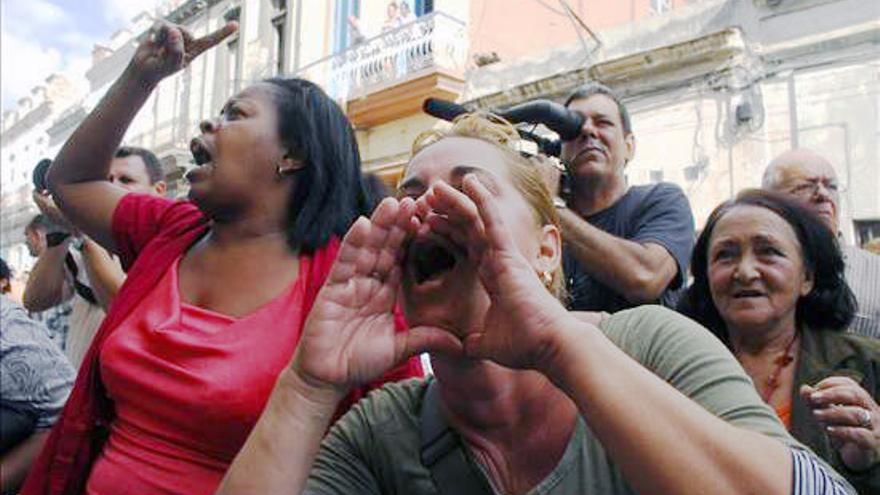More and more Cubans have the possibility of accessing the independent press, which has seen unprecedented development in the last decade

![]() 14ymedio, Karel J. Leyva, Montreal (Canada) — Rwanda and Botswana are not exactly the first countries that come to mind when thinking about examples of well-being and progress. Both have faced and do face monumental challenges, with a history marked by chronic poverty, unemployment, violence and levels of corruption that could discourage even the most optimistic of social engineers. And yet, in the last decade, these two countries have achieved remarkable transformations.
14ymedio, Karel J. Leyva, Montreal (Canada) — Rwanda and Botswana are not exactly the first countries that come to mind when thinking about examples of well-being and progress. Both have faced and do face monumental challenges, with a history marked by chronic poverty, unemployment, violence and levels of corruption that could discourage even the most optimistic of social engineers. And yet, in the last decade, these two countries have achieved remarkable transformations.
Rwanda, devastated by a genocide in 1994 that left the country in ruins, has emerged with a series of reforms in technology and governance that have catalyzed notable economic growth. Since 2014, Rwanda’s GDP per capita has more than doubled, and development policies have lifted more than a million people out of poverty. For its part, Botswana has been able to take advantage of its rich natural resources to finance substantial improvements in infrastructure, education and health. These investments have not only raised its human development index, but have also strengthened its economy, transforming it into one of the most stable and prosperous in Africa, with sustained growth of 5% annually in the last decade.
While the governments of these, and other countries with comparatively unfavorable contexts, have shown a clear willingness to adopt policies aimed at improving the quality of life of citizens, the Government of Cuba has made the opposite choice: aggravate suffering, increase misery and vigorously encourage the hopelessness of its people. continue reading
The Government of Cuba has made the opposite choice: aggravate suffering, increase misery and vigorously encourage the hopelessness of its people
In the last decade, life expectancy in Cuba has fallen, the population has decreased, and emigration continues to undermine the country’s productive capacity. There has also been a significant increase in the number of citizens imprisoned for political reasons. Between September 2019 and March 2024, the number of prisoners of conscience increased from 128 to 1,092 (an increase of 773.6%).
Such an increase results from the growing number of manifestations of discontent that have taken on dimensions never seen before on the Island, since it is known that exercising a universally recognized right is punished in Cuba with repression. In the misnamed “Republic of Cuba” the republican virtue that constitutes civic participation is suffocated with violence, imprisonment and torture.
In addition, in this period forced exile and the so-called ’regulation’ (prohibition of departure) have been normalized with the consequent violation of at least a dozen rights, not counting those that are violated through threats, blackmail and more brutal psychological pressures.
And what can we say about runaway inflation, the enormous deterioration of infrastructure, the alarming decline in Public Health and Education services, and the devastating exacerbation of poverty – which led us to be crowned in 2021 as the most miserable country in the world according to the Henke index – or the exponential increase in social inequality.
As curious as it may seem, the last 10 years have also witnessed what I call “the dilemma of authoritarian control of information.” If in 2014 only 22 out of every 100 people had access to a cell phone, currently this number has tripled, as has internet use (all thanks to exiled family and friends). It is true that allowing such access has swelled the coffers of the military conglomerate Gaesa due to its monopoly control over the media, but at the same time it presents them with the dilemma of granting the population unprecedented access to information (global, thanks to the use of VPNs [Virtual Private Networks] to circumvent censorship).
Such access allows people to choose the press they read, be amazed at all the good that capitalism – supposedly evil – offers their exiled compatriots, and be aware of the support they receive from abroad for the fervent activity of Cuban civil society. Since the military oligarchy cannot give up the millions it pockets, it has had to bet everything on its brutal repression being enough to counteract the benign effect of the flow of news from unofficial sources.
14ymedio is, without a doubt, one of the most serious media outlets, respected and admired by both Cubans and the international community
More and more people have the ability to access the independent press, which has seen unprecedented development in the last decade. It is enough to mention the founding of 14ymedio, in 2014, and the essential work they have done since then. It is, without a doubt, one of the most serious media outlets, respected and admired by both Cubans and the international community. A newspaper that, to make matters worse, is published from Cuba (in the very jaws of the hyena), and that takes on the arduous task of circumventing communist censorship to get information to the people in multiple ways.
To summarize, in these last 10 years everything that the people wanted to increase has been reduced, and almost everything that should have been reduced has expanded, with the notable exception of access (reluctantly) to information and the consolidation of the independent press as a reliable source.
But to be fair, there are also things that haven’t changed. For example, the fact that everything is so disastrously wrong that it seems unreal. Or that Cubans are forced to live a life they do not want, to give up what they love, to say what they do not think, to silence what they want to shout.
The totalitarian effort to stifle talent, applaud mediocrity, call traitors heroes, and to try to convince us that we are a weak, isolated and unprotected people has not changed. The uninterrupted advance towards decadence, moral collapse has not changed and, above all, the persistent idea that it is not worth living in our own country remains unchanged.
____________
COLLABORATE WITH OUR WORK: The 14ymedio team is committed to practicing serious journalism that reflects Cuba’s reality in all its depth. Thank you for joining us on this long journey. We invite you to continue supporting us by becoming a member of 14ymedio now. Together we can continue transforming journalism in Cuba.



